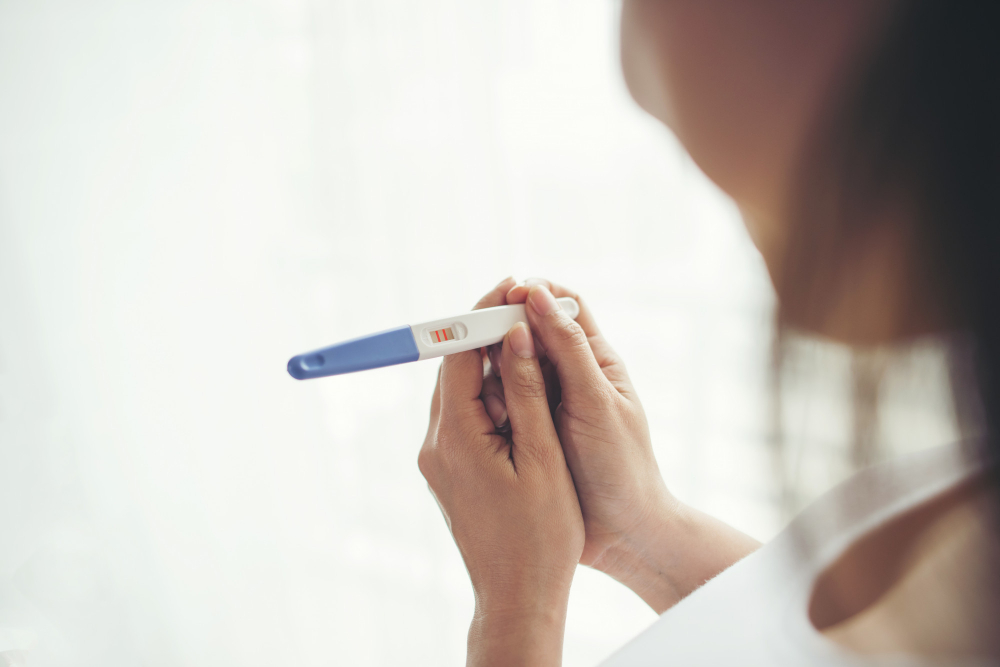

What is vaccination (artificial insemination)?
It is expressed with various terms such as vaccination, artificial insemination, artificial insemination, intrauterine insemination (IUI), intracervical insemination (ICI). Vaccination means that in couples who cannot conceive naturally, the sperm taken from the partner is given into the cervix or into the uterus with the help of a catheter after washing with special solutions in the laboratory.
What are the Conditions for Vaccination?
The tubes are open and there is no pathological condition in the tubes,
Having a suitable number of motile live sperm,
Having naturally active-cracked follicles in the ovaries or cracked with drugs,
Appropriate thickness of the intrauterine endometrial layer (at least 6 mm or thicker).
Before vaccination, women to be vaccinated should be evaluated with medicated uterine film (HSG) to determine whether the tubes are open. Some couples can conceive naturally after this HSG procedure.
The chance of success is very low in young women with high FSH on the 3rd day of menstruation. In this case, ovarian reserves should be evaluated.
Who is Eligible for Vaccination?
Vaccination is not a method to be applied to every infertile woman who wants to have children. Couples who do not have a uterus, whose inner wall of the uterus does not thicken (endometrial adhesion), whose tubes are clogged, who have severe male factor, whose spouse has very low or no sperm, who do not ovulate (in menopause), and who have severe endometriosis cannot benefit from this method.
If women with polycytic ovary (PCOS) cannot conceive spontaneously, it is necessary to provide eggs with drugs and vaccination. If the factors that require vaccination are briefly listed;
-Male factor: Low sperm count and movement percentage.
-Ovulatory factor: Absence of ovulation.
-Unexplained infertility
-Cervical factor: Conditions with poor or no cervical mucus quality
-Immunological factor: In the presence of antibodies to sperm (in the presence of antisperm antibodies).
-Structural disorders of the cervix
– In the presence of a chocolate cyst (endometriosis)
- Vaginismus, erection problems, such as various sexual dysfunctions should be vaccinated.
Vaccination can be effective in women under the age of 41.
Certain antibodies (anti-sperm antibodies) found in the cervical mucus of some women who are thought to be infertile due to immunological factors may prevent sperm from reaching the uterus.
Since the sperms are given directly into the uterus with the inoculation process, this obstacle (cervical factor) is overcome; thus, the travel path of the sperms is shortened and the chance of pregnancy is increased, as the tubes can be accessed more easily in this way.
How is the Sperm Washing Process Performed?
In the sperm washing process, after 2-3 days of sexual abstinence, the semen sample is taken by masturbation. When the sperms are subjected to a special treatment in the washing process, the sperms are separated from the other components of the semen. Extremely fast moving and healthy sperms are selected. For inoculation, there must be at least one million motile sperm after washing. Sperm washing takes 30-60 minutes. Washed and selected sperms are delivered to the doctor who will perform IUI in special tubes and through thermoses that keep them at a certain temperature.
How Is Vaccination Performed?
Informed written consent of infertile couples should be obtained before the vaccination process.
The infertile woman to be vaccinated is brought to the gynecological table.
A vaginal speculum is inserted.
Vagina and cervix are cleaned with serum physiology.
After the sperm, which have been sent from the laboratory in a specially processed and temperature-adjusted thermos, are taken from the tube with the help of a special catheter and injector, and the air contained in it is removed, this catheter is passed through the cervical canal of the cervix gently, without forcing, and the uterine cavity is entered, sperm is slowly injected with the help of an injector. During this procedure, the tip of the catheter should not touch the uterine wall if possible; If touched, uterine contractions occur and most of the sperm come out of the cervical canal.
The catheter and speculum are removed.
The vaccinated woman is placed on her back for 30-40 minutes.
There is no pain during this procedure. After the vaccination, various hormone treatments are recommended to support the uterus and prevent miscarriage in case of pregnancy.
Continuing to rest after vaccination does not change the result. Can return to daily routine activities. Sexual intercourse is allowed after a day or two.
An average of 10-12 days after vaccination, whether there is a pregnancy or not, can be understood by the Beta HCG test in the blood.

Pregnancy and Birth
Genital Aesthetics
Gynecology
Gynecology
Genital Aesthetics
Vaginismus
Pregnancy and Birth
Gynecology
Pregnancy and Birth
Gynecology
Gynecology
Gynecology